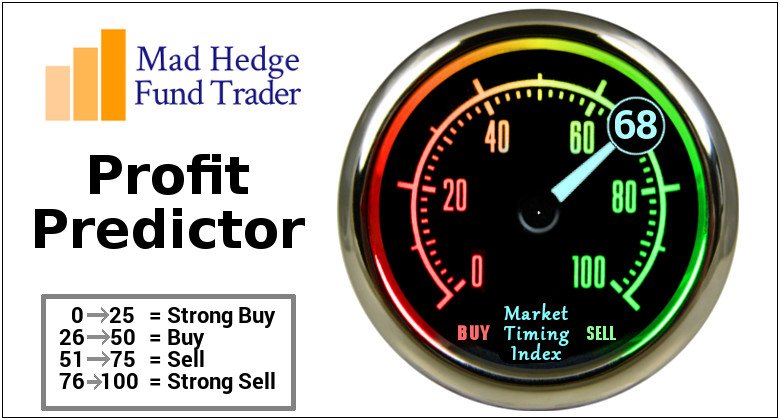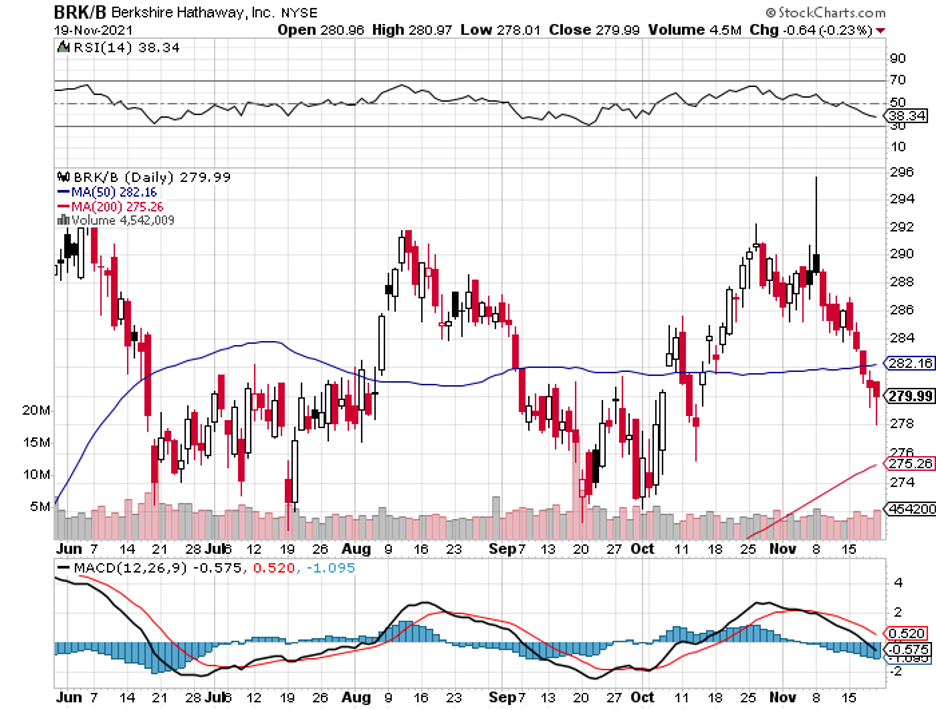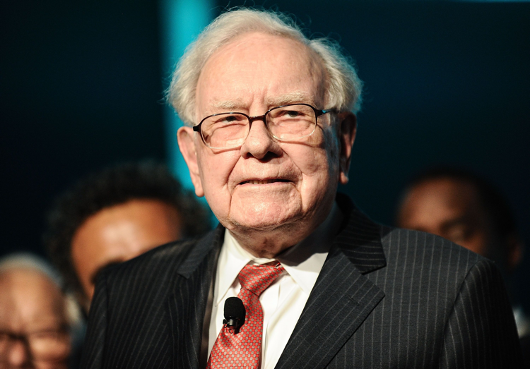Trade Alert - (BRKB) November 22, 2021 - EXPIRATION-TAKE PROFITS
When John identifies a strategic exit point, he will send you an alert with specific trade information as to what security to sell, when to sell it, and at what price. Most often, it will be to TAKE PROFITS, but, on rare occasions, it will be to exercise a STOP LOSS at a predetermined price to adhere to strict risk management discipline.
Trade Alert - (BRKB) – EXPIRATION
EXIRATION of the Berkshire Hathaway B Shares (BRKB) November 2021 $275-$280 in-the-money vertical Bull Call spread at $4.99
Closing Trade
11-22-2021
expiration date: November 19, 2021
Portfolio weighting: 10%
Number of Contracts = 25 contracts
Call your broker.
That’s the only thing you can do to find out what your true position is in Berkshire Hathaway after the November 19 option expiration.
We have encountered the rare situation where the long November $475 strike price call option side expired worth $4.99 in-the-money but the short side November $480 call option expired worthless, one penny out-of-the-money.
That will leave you long 100 shares of (BRKB) at the Monday morning opening for each option contract you owned. If you had 25 spreads, you now own 2,500 shares of Berkshire Hathaway worth $1,199,975.
If you have the cash in your account to cover this purchase that’s fine. Just sell the stock at market at opening. You might even make a bigger profit if the stock opens up.
If you don’t have adequate cash, you will get a margin call from your broker. If you don’t sell the stock immediately, you may get a forced liquidation and they will sell the stock anyway at market at the opening.
In any case, it is crucial that you learn your true position at the Monday opening and that you get out of this position.
On Thursday night the Berkshire Hathaway B Shares (BRKB) November 2021 $275-$280 in-the-money vertical Bull Call spread was trading easily at max profit. However, In the next 24 hours, we learned about a new Covid wave in Europe. This triggered a major global stock market selloff, soaring bond prices, and collapsing interest rates. Financial stocks are the worse hit.
Of course, this had to happen on our largest option expiration day of the year when we have five positions expiring in hours either at or just out of the money. If you trade markets long enough, this happens once every several years. We have had a tremendous run this year and it was just a matter of time before this happened.
This was a bet that Berkshire Hathaway (BRKB) would not fall below $280 by the November 19 option expiration day in 13 trading days. For more about (BRKB), please click here for their website at https://berkshirehathaway.com
Here is the specific accounting you need to close out this position:
EXPIRATION of 25 November 2021 (BRKB) $275 calls at………....…$4.99
EXPIRATION of Sell short 25 November 2021 (BRKB) $280 calls at....$0
Net Proceeds:……………………..…….………..………...........……..….….....$4.99
Profit: $4.99 - $4.00 = $0.99
(25 X 100 X $0.99) = $2,475 or 224.75% in 13 trading days.
The Barbell Play with Berkshire Hathaway
It’s time to give myself a dope slap.
I have been pounding the table all year about the merits of a barbell strategy, with equal weightings in technology and domestic recovery stocks. By owning both, you’ll always have something doing well as new cash flows bounce back and forth between the two sectors like a ping pong ball.
After all, nobody gets sector rotation right, unless they have been practicing for 50 years, like me.
Full disclosure: I have to admit that after 50 years of following him, I love Buffet. He was one of the first subscribers to my newsletter when it started up in 2008. Some of his best ideas have come from the Mad Hedge Fund Trader, like buying Bank of America for $5 in 2008.
Oh, and he hates Wall Street for constantly fleecing people. Ditto here.
In reading Warren Buffet’s annual letter (click here for the link), it occurred to me that his Berkshire Hathaway (BRKB) shares were in effect a one-stop barbell investment.
For a start, Warren owns a serious slug of Apple (AAPL), some $120 billion worth, or 2.5% of the total fund. That gives (BRKB) some technology weighting. It cost him only $20 billion. The dividends he received entirely paid for the initial cost. So he owns 4% of Apple for free.
I remember the battle over the initial “BUY” five years ago. Warren fought it, insisting he didn’t understand the smartphone business. In the end, he bought Apple for its global brand value alone.
That is Warren Buffet to a tee.
The next five largest publicly listed holdings are Bank of America (BAC), Coca-Cola (KO), American Express (AXP), and Verizon Communications (VZ). These are your classic domestic recovery sectors. And with a heavy weighting in other banks (BK) (USB), Buffet is effectively short the bond market (TLT), another position I hugely favor.
Also included in the package is a liberal salting of pharmaceuticals, Merck (MRK) and AbbVie (ABBV). He has a small energy weighting with Chevron (CVX). He even has a position in old heavy metal America with General Motors (GM).
Berkshire is also one of the world’s largest property & casualty insurance owners. Its current “float” is $138 billion. You all know his flagship holding, GEICO. And the gecko mascot isn’t going anywhere as long as Warren lives. It was Warren’s idea.
It all seems to work for Warren. In 2020, he earned a staggering $42.5 billion. All told, Berkshire’s businesses employ 360,000, second to only Amazon (AMZN), and is the largest taxpayer in the United States, accounting for 3% of government revenues. Berkshire is also the largest owner of capital goods & equipment in the US worth $156 billion, topping (AT&T).
Many of Warrens's early 1956 $1,000 investors are millionaires many times over….and over 100 years old, prompting him to muse if ownership of his shares extended life.
Warren’s annual letter, which he spends practically the entire year working on, is always one of the best reads in the financial markets. There isn’t a better 50,000-foot view out there. He also admits to his mistakes, such as his disastrous purchase of Precision Castparts (PCC) in 2016 for $37 billion, which later suffered from the crash in the aerospace industry. In 2020, Buffet wrote off $11 billion of that acquisition.
He can do worse. In 1993, he bought the Dexter Shoe Company for $433 million worth of Berkshire stock. The company went under, but the Berkshire stock today is worth $8.7 billion.
Buffet’s letters always refer back to some of his “greatest hits,” today legends in the business history of the United States: GEICO, Furniture Mart, Berkshire Hathaway Energy, and See’s Candies, one of the largest employers of women in the US using 150-year-old recipes. Its peanut brittle is to die for.
In 2009, Buffet snatched away from me BNSF for a song, now the most profitable railroad in the country, an amalgamation of 360 railroads over 170 years. I say “snatched away” because it was my favorite railroad trading vehicle for decades until he bought the entire company. I hear its trains run by my home every night as a grim reminder.
Another benefit to owning (BRKB) is that Buffet is far and away the largest buyer of his own shares, soaking up $25 billion worth in 2020. And he is buying the shares of other companies that are also aggressively buying their own shares, like Apple ($200 billion with last year). It all sounds like the perfect money creation machine to me.
It gets better. Berkshires “B” shares trade options, meaning you can buy LEAPS (Long Term Equity Anticipation Securities), which by now, you all know and love. I’ll run some numbers for you.
With (BRKB) now trading at $254, you can buy the January 2023 $300-$310 call spread for $2.50. If the shares close anywhere over $310 by the 2023 expiration, the position will be worth $10.00, giving you a gain of 300%. And you only need an appreciation of $56, or 22% in the shares to capture this blockbuster profit, giving you upside leverage of an eye-popping 13.63X in the best-run company in America.
See, I told you you’d like it.
This is how poor people become rich. In fact, my target for (BRKB) is $300 for end of 2021 and $400 for 2022, right when the two-year LEAPS expire.
One question I often get about Berkshire is what happens when Warren Buffet goes to his greater reward, not an impossible concept given that he is 90 years old.
I imagine the shares will have a bad day or two, and then recover. Buffet has been hiring his replacements for a decade or more, and he handed off day-to-day operation years ago (I didn’t want to move to Omaha, no mountains).
When that happens, it will be the best buying opportunity of the year. And another chance to load up on those LEAPS.






